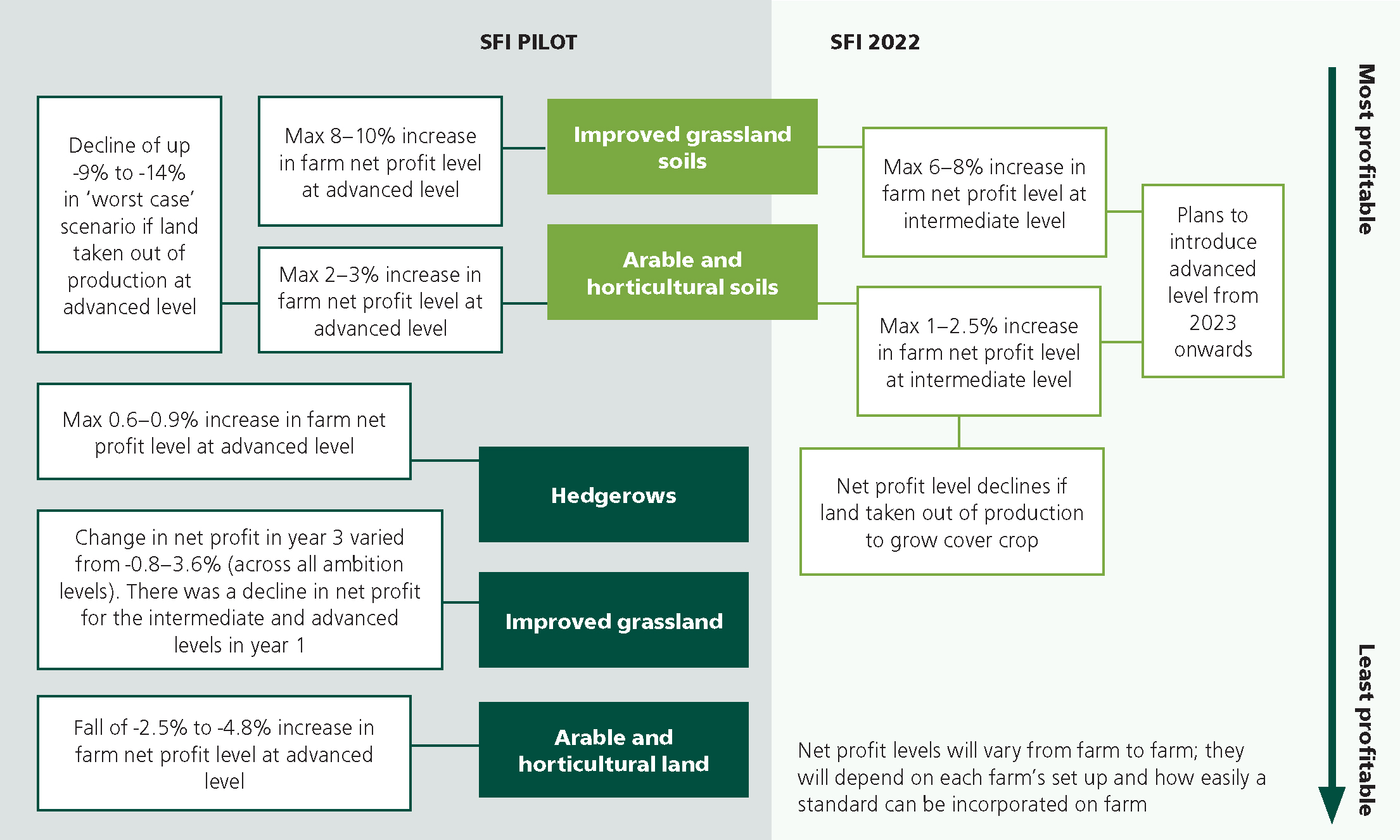Change is happening at a rapid pace for farmers in England right now. Events in Ukraine have significantly elevated energy, feed and fuel costs. Once routine, business decisions now need to be rethought. But in addition to the volatility in commodity markets we should not overlook that changes to farm policy present a significant, albeit less immediate, challenge to farm business.
Direct payment removal
Area-based direct payments will have been phased out in England by 2028. The process of removal is a gradual one over the transition period. Indeed, farmers will have already received the first reduction to their annual payments of around 5%, a figure that will be higher for those receiving the highest levels of support. Strong market prices last year may have masked the impact of this on a business's bottom line.
Research conducted by Agriculture and Horticulture Development Board (AHDB) shows that farmers vary considerably in level of preparedness for the loss of direct payments: just over half of those interviewed have made plans (AHDB, 2022). Of farmers that had made plans, diversification was the most favoured strategy. Other plans included entering new environmental schemes, working out how their direct payments will reduce, scaling production either up or down and improving efficiency.
Many farmers say they are unsure what impact the policy change would have on their business. This is something AHDB can help with, our farm business review tools allow farmers to calculate what the payment reductions will look like on their farm, together with providing information on addressing the loss of income (https://ahdb.org.uk/farm-business-review).
Sustainable farming incentive
As direct payments are being phased out there will be a phasing in of the new Environmental Land Management Scheme (ELMS). This has raised expectation that the new schemes could be used to offset income lost elsewhere. A number of programmes are included across the ELMS arena, but Defra does not see these schemes as a replacement for direct payments, rather the rhetoric is that they are providing public money for farmers to deliver public goods.
Many will feel that farmers have been delivering these ‘public goods’ for some time. But the good news is that government will now directly pay for on farm actions that help manage habitats for wildlife, mitigating climate change, improving water quality and reducing flood risk etc.
The Sustainable Farming Incentive (SFI), part of ELMS, rewards farmers for carrying out actions that benefit the environment. The SFI pilot began towards the end of 2021 and has eight standards that farmers could apply on their farms. The wider rollout of the SFI is due to begin in summer 2022.
Do the finances stack up?
AHDB, alongside Harper Adams University, has looked at farmer attitudes and intentions to both the pilot SFI scheme and the 2022 roll out, as well as modelling the likely impact on net profits of participating in the scheme.
Our Horizon report: Assessing the impact of the Sustainable Farming Incentive on farm businesses (AHDB, 2022), shows that at the current payment rates, most SFI standards will only provide a small financial benefit to many farmers when the costs of undertaking SFI actions are included. However, those farmers who are already carrying out some of the actions required and do not have to take land out of production will benefit the most.
While the net payments for most of the standards in the SFI standards examined were positive, the overall impact on the farms’ net profit (total revenue minus total costs) was negative once land taken out of production was considered. The graphic in Figure 1 discusses the profitability of the various standards on a series of virtual farms, which are discussed in the report:

Out of the five standards considered, the ‘improved grassland soils’ followed by ‘arable and horticultural soils’ standards had the most positive effect on the virtual farms’ net profit levels. These standards will remain when the wider rollout of the SFI begins in summer 2022.
The ‘arable and horticultural land’ standard in the SFI pilot led to a decline in the virtual arable farms’ net profit levels because of the need to take land out of production. Our analysis shows that it is unlikely to be financially beneficial to farmers to participate in certain standards unless they are already undertaking at least some of the actions required. The net effect of participation will vary greatly between individual farms.
KEY POINTS
- If farmers are already carrying out actions on-farm that are required under the Sustainable Farming Incentive (SFI), it is beneficial to join the scheme because they will receive extra income.
- If farmers are not carrying out the actions required, but their farm set-up will allow them to do so with little additional cost, it is beneficial to join the scheme.
- For farmers where this is less apparent, it is worthwhile to carry out the calculations for their own farms to see if taking part in the scheme will be worthwhile for them.
Conclusions
The SFI will not replace direct payments, even for those most efficient at producing environmental goods, so it is important that farmers consider the SFI within a wider review of their business in order to ensure they mitigate the loss of direct payments and remain profitable throughout the agricultural transition period and beyond.


